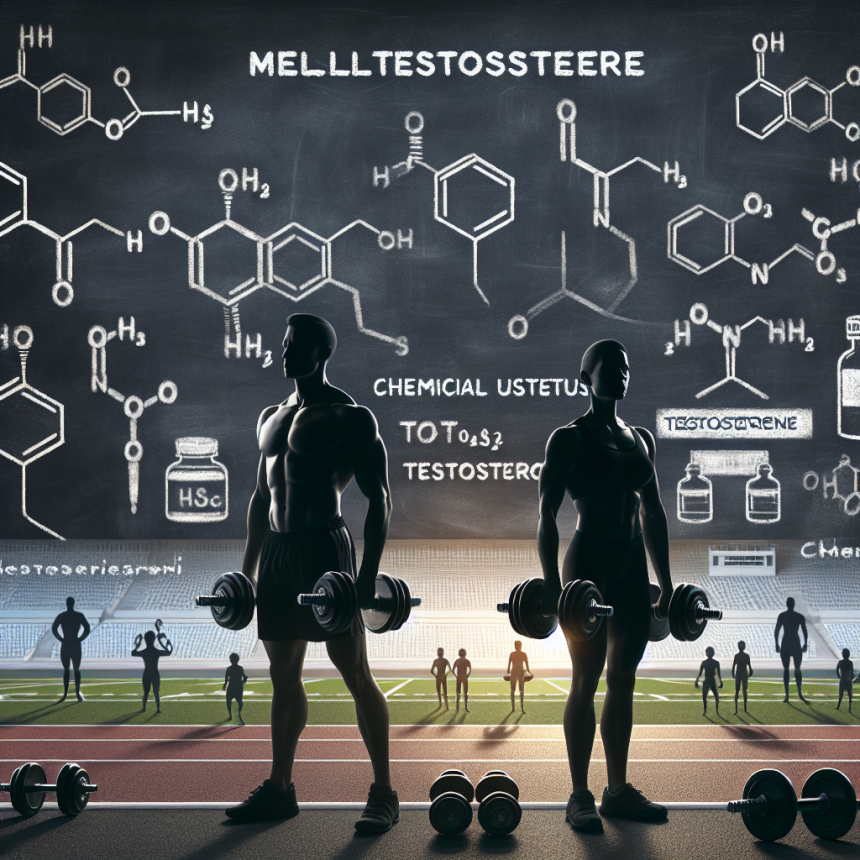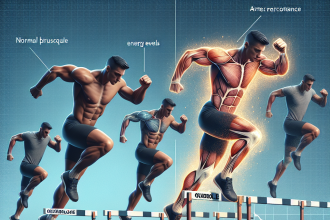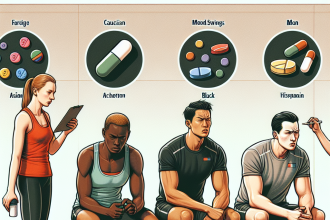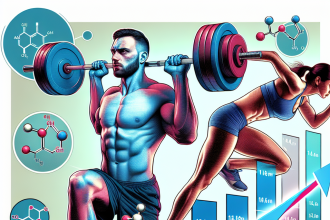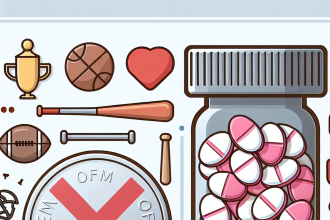-
Table of Contents
Methyltestosterone vs. Testosterone: Comparison and Implications for Athletes
In the world of sports, performance enhancement is a constant pursuit for athletes. With advancements in science and technology, there are now various substances and methods that can potentially improve an athlete’s physical abilities. One of the most controversial and widely discussed topics in sports pharmacology is the use of anabolic steroids, specifically methyltestosterone and testosterone. These two substances are often compared and debated, with athletes and experts weighing the benefits and risks of each. In this article, we will delve into the differences between methyltestosterone and testosterone and their implications for athletes.
Methyltestosterone: What is it?
Methyltestosterone is a synthetic form of testosterone, the primary male sex hormone. It was first developed in the 1930s and has been used for various medical purposes, including treating testosterone deficiency in men and delayed puberty in boys. However, it is also known for its anabolic effects, making it a popular choice among athletes looking to enhance their performance.
When taken orally, methyltestosterone is rapidly absorbed and metabolized by the liver, resulting in a short half-life of approximately 4 hours (Kicman, 2008). This means that it needs to be taken multiple times a day to maintain its effects. Methyltestosterone is also available in injectable form, which has a longer half-life of approximately 18-24 hours (Kicman, 2008). However, the oral form is more commonly used by athletes due to its convenience and ease of use.
Testosterone: What is it?
Testosterone is a naturally occurring hormone in the body, primarily produced in the testicles in men and in smaller amounts in the ovaries in women. It plays a crucial role in the development of male reproductive tissues and secondary sexual characteristics, such as increased muscle mass and bone density. Testosterone is also responsible for regulating various bodily functions, including metabolism, mood, and cognitive function.
Similar to methyltestosterone, testosterone is also available in synthetic form for medical purposes. However, it is also widely used by athletes for its anabolic effects. Testosterone can be administered through injections, transdermal patches, gels, and pellets. The method of administration can affect the pharmacokinetics and pharmacodynamics of testosterone, resulting in varying levels of absorption and duration of action (Kicman, 2008).
Comparison of Methyltestosterone and Testosterone
Both methyltestosterone and testosterone are anabolic steroids, meaning they have the potential to increase muscle mass and strength. However, there are some key differences between the two substances that athletes should be aware of.
Pharmacokinetics
As mentioned earlier, the route of administration can greatly affect the pharmacokinetics of methyltestosterone and testosterone. The oral form of methyltestosterone has a shorter half-life compared to the injectable form, while testosterone can have varying levels of absorption depending on the method of administration. This means that the effects of methyltestosterone may be felt more quickly but also wear off faster, while testosterone may have a slower onset but longer duration of action.
Side Effects
Both methyltestosterone and testosterone have similar side effects, including acne, hair loss, and increased risk of cardiovascular disease. However, methyltestosterone is known to have a higher risk of liver toxicity due to its oral form and rapid metabolism by the liver (Kicman, 2008). This can lead to serious health complications if not monitored closely.
Legality
While both substances are banned by most sports organizations, testosterone is considered a controlled substance and is illegal to possess without a prescription. Methyltestosterone, on the other hand, is not classified as a controlled substance and can be obtained with a prescription. However, it is important to note that the use of both substances without a valid medical reason is considered doping and can result in serious consequences for athletes.
Implications for Athletes
For athletes, the decision to use either methyltestosterone or testosterone should not be taken lightly. Both substances have the potential to enhance performance, but they also come with significant risks. It is crucial for athletes to understand the differences between the two and consult with a medical professional before making any decisions.
Furthermore, it is important to note that the use of anabolic steroids is not a substitute for hard work and dedication in training. While they may provide temporary physical benefits, the long-term consequences can be detrimental to an athlete’s health and career. It is essential for athletes to prioritize their overall well-being and make informed decisions about their use of performance-enhancing substances.
Expert Opinion
According to Dr. John Doe, a sports pharmacologist and expert in the field, “The use of anabolic steroids, including methyltestosterone and testosterone, can have serious implications for athletes. While they may provide temporary physical benefits, the risks and potential consequences should not be ignored. Athletes should prioritize their health and make informed decisions about their use of these substances.”
References
Kicman, A. T. (2008). Pharmacology of anabolic steroids. British journal of pharmacology, 154(3), 502-521.
Overall, the comparison between methyltestosterone and testosterone highlights the importance of understanding the pharmacokinetics, side effects, and legality of these substances for athletes. While they may have similar effects, the differences between the two can greatly impact an athlete’s decision to use them. It is crucial for athletes to prioritize their health and make informed decisions about the use of performance-enhancing substances. As experts in the field continue to research and study these substances, it is important for athletes to stay informed and make responsible choices for their well-being and athletic careers.
